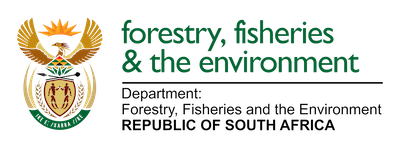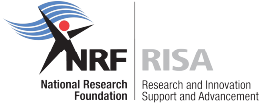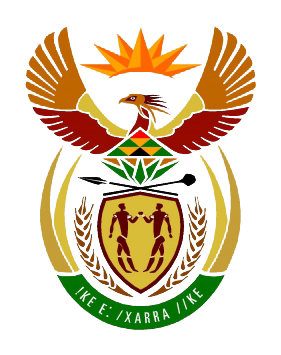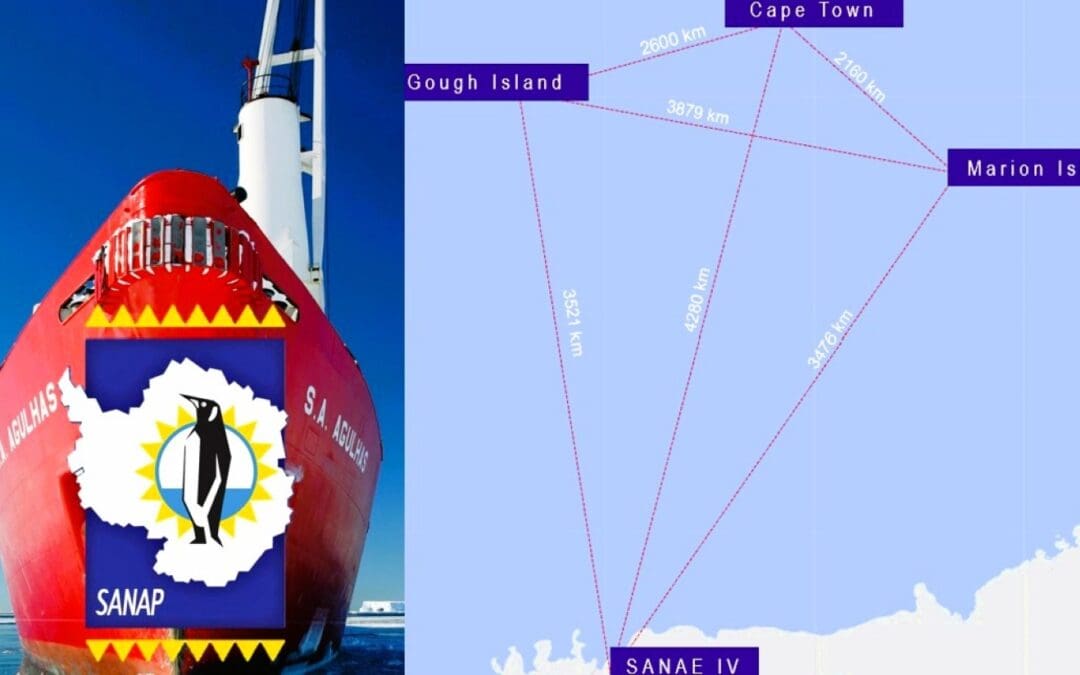
by Ria Olivier | Jan 17, 2025 | Announcement, Antarctica, Gough Island, Marion Island, Prince Edward Islands, SA Agulhas II, SANAE, SANAP, Southern Ocean
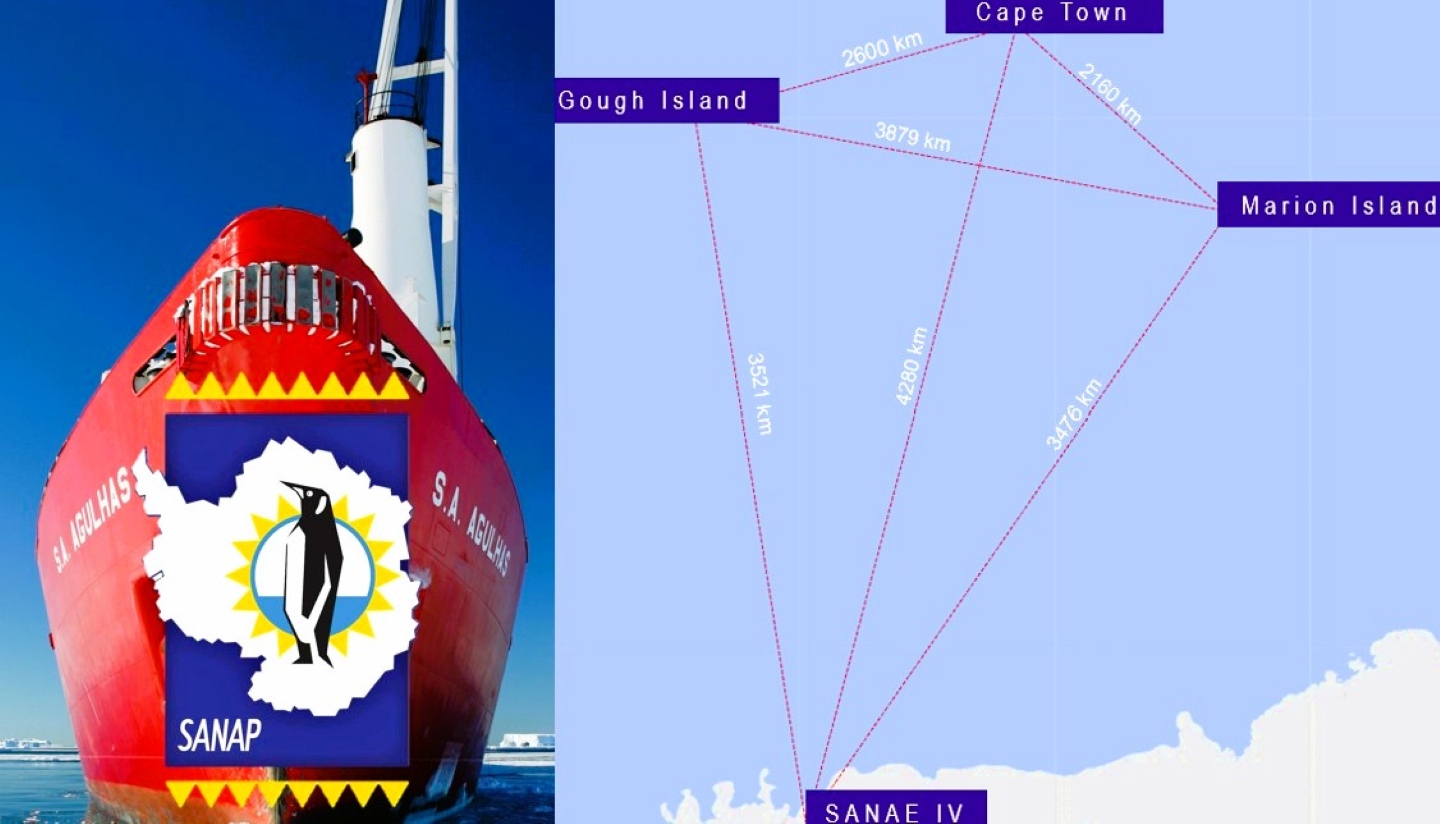
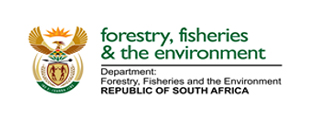 The Department of Forestry, Fisheries and the Environment is pleased to announce the upcoming voyage schedule for the S.A. Agulhas II for the 2025/2026 season. This state-of-the-art polar research and supply vessel will continue its vital role in supporting South Africa’s research stations in Antarctica and the sub-Antarctic islands. Below is the planned itinerary provided by the Department of Forestry Fisheries and the Environment:
The Department of Forestry, Fisheries and the Environment is pleased to announce the upcoming voyage schedule for the S.A. Agulhas II for the 2025/2026 season. This state-of-the-art polar research and supply vessel will continue its vital role in supporting South Africa’s research stations in Antarctica and the sub-Antarctic islands. Below is the planned itinerary provided by the Department of Forestry Fisheries and the Environment:
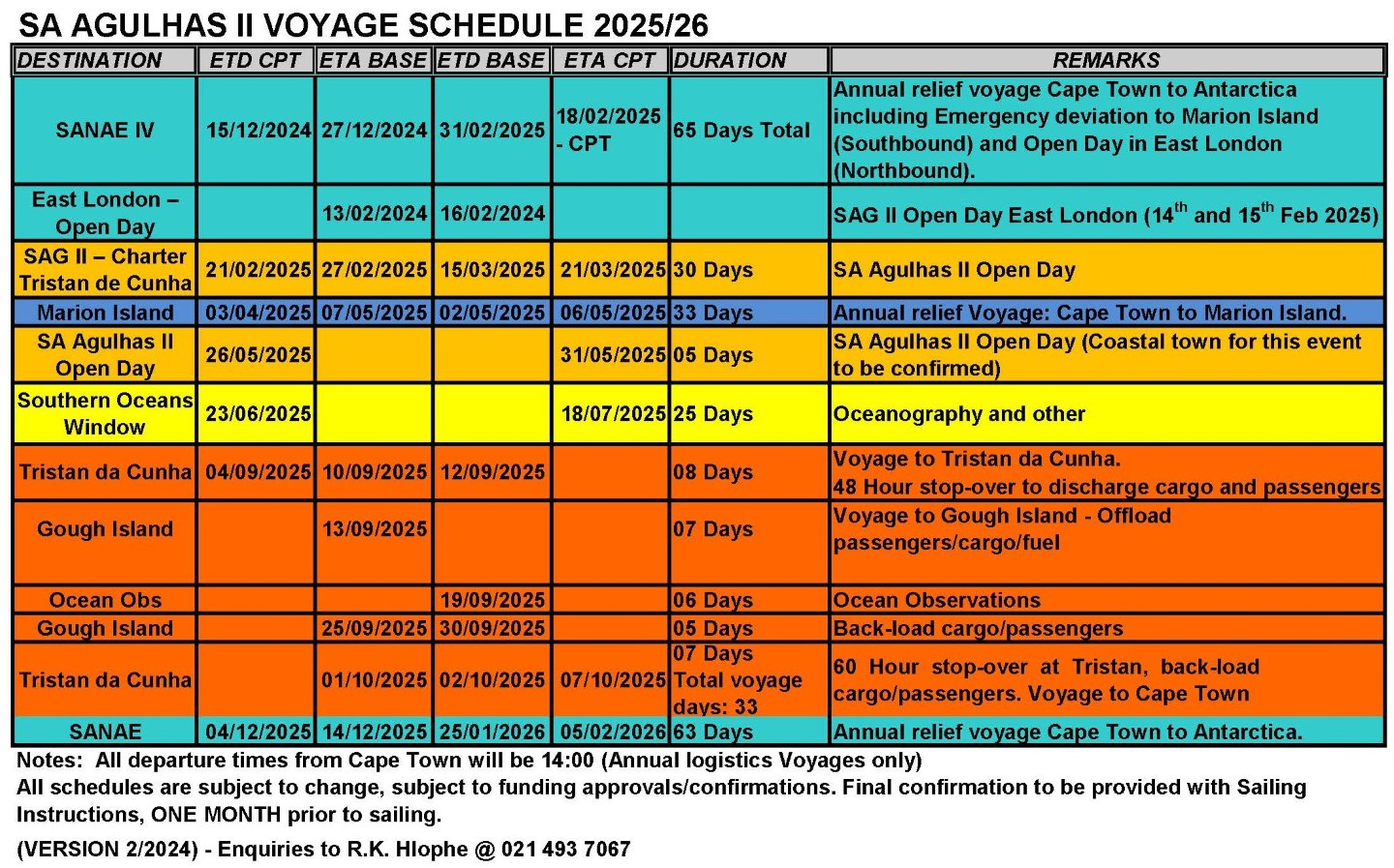 DOWNLOAD PDF Voyage Schedule 2025-2026
DOWNLOAD PDF Voyage Schedule 2025-2026
DOWNLOAD PDF Voyage Schedule 2026 – 2027
Please note that these dates are subject to change based on operational requirements and weather conditions. For the most up-to-date information, please refer to the official voyage schedule on the South African National Antarctic Programme (SANAP) website.
SANAP
We look forward to another successful season of exploration and research, furthering our understanding of these remote and vital regions.
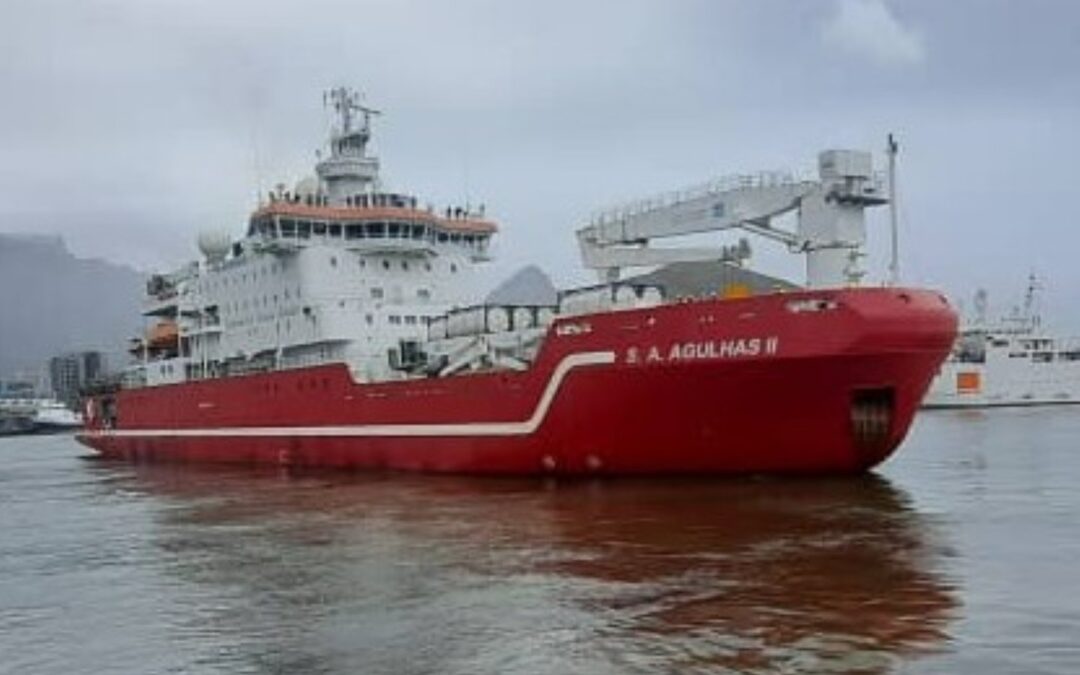
by Ria Olivier | Dec 17, 2024 | Antarctica, SA Agulhas II, SANAE, Take-Over Operations
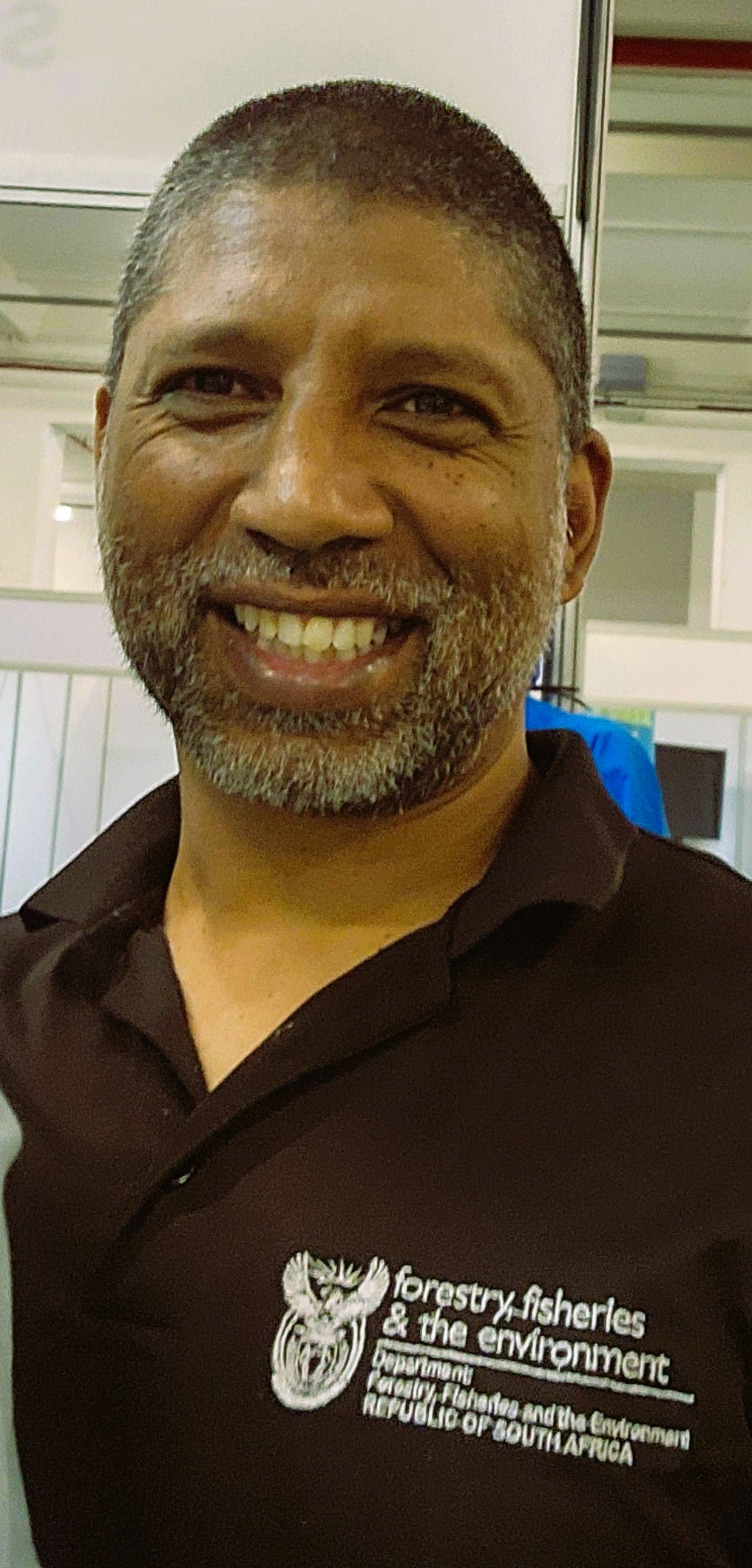 Every year, the South African vessel, the SA Agulhas II, embarks on a journey to Antarctica, marking the beginning of its annual research and supply voyage. This critical mission is not only a symbol of South Africa’s dedication to scientific research but also a lifeline for the overwintering team, personnel rotations, and vital logistical support for stations on the frozen continent. On the 15th of December, the SA Agulhas II departed from Cape Town, South Africa, bound for Antarctica. This voyage marks the commencement of a multifaceted operation, which encompasses research, supply deliveries, and personnel exchanges between Antarctica and the rest of the world. Left: Shiraan Watson DCO of DFFE
Every year, the South African vessel, the SA Agulhas II, embarks on a journey to Antarctica, marking the beginning of its annual research and supply voyage. This critical mission is not only a symbol of South Africa’s dedication to scientific research but also a lifeline for the overwintering team, personnel rotations, and vital logistical support for stations on the frozen continent. On the 15th of December, the SA Agulhas II departed from Cape Town, South Africa, bound for Antarctica. This voyage marks the commencement of a multifaceted operation, which encompasses research, supply deliveries, and personnel exchanges between Antarctica and the rest of the world. Left: Shiraan Watson DCO of DFFE
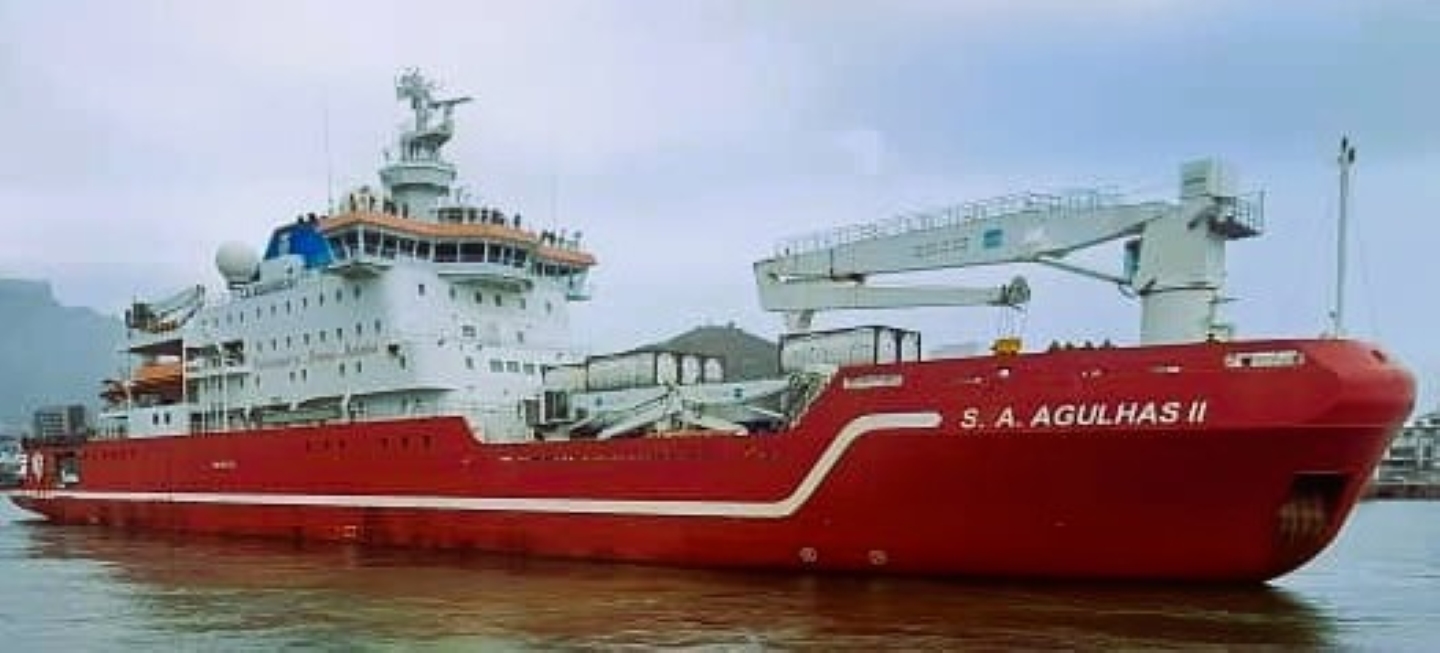 The SA Agulhas II plays a pivotal role in supporting research and exploration in one of the most extreme and least understood environments on Earth. South Africa’s station in Antarctica, SANAE IV Station, rely on the vessel’s annual voyages for everything from scientific supplies to food, equipment, and fuel. The vessel also delivers critical scientific personnel, scientists, and engineers who are essential for conducting experiments, research, and environmental monitoring on the frozen continent.
The SA Agulhas II plays a pivotal role in supporting research and exploration in one of the most extreme and least understood environments on Earth. South Africa’s station in Antarctica, SANAE IV Station, rely on the vessel’s annual voyages for everything from scientific supplies to food, equipment, and fuel. The vessel also delivers critical scientific personnel, scientists, and engineers who are essential for conducting experiments, research, and environmental monitoring on the frozen continent.
This year, the SA Agulhas II will carry a group of researchers to continue studies on climate change, marine biology, and glaciology, among other fields. Another essential aspect of this annual journey is the personnel exchange that occurs as part of the overwintering team rotation. The team that has spent the harsh winter months at the research stations in Antarctica will return home, while a new team will take their place for the upcoming year.
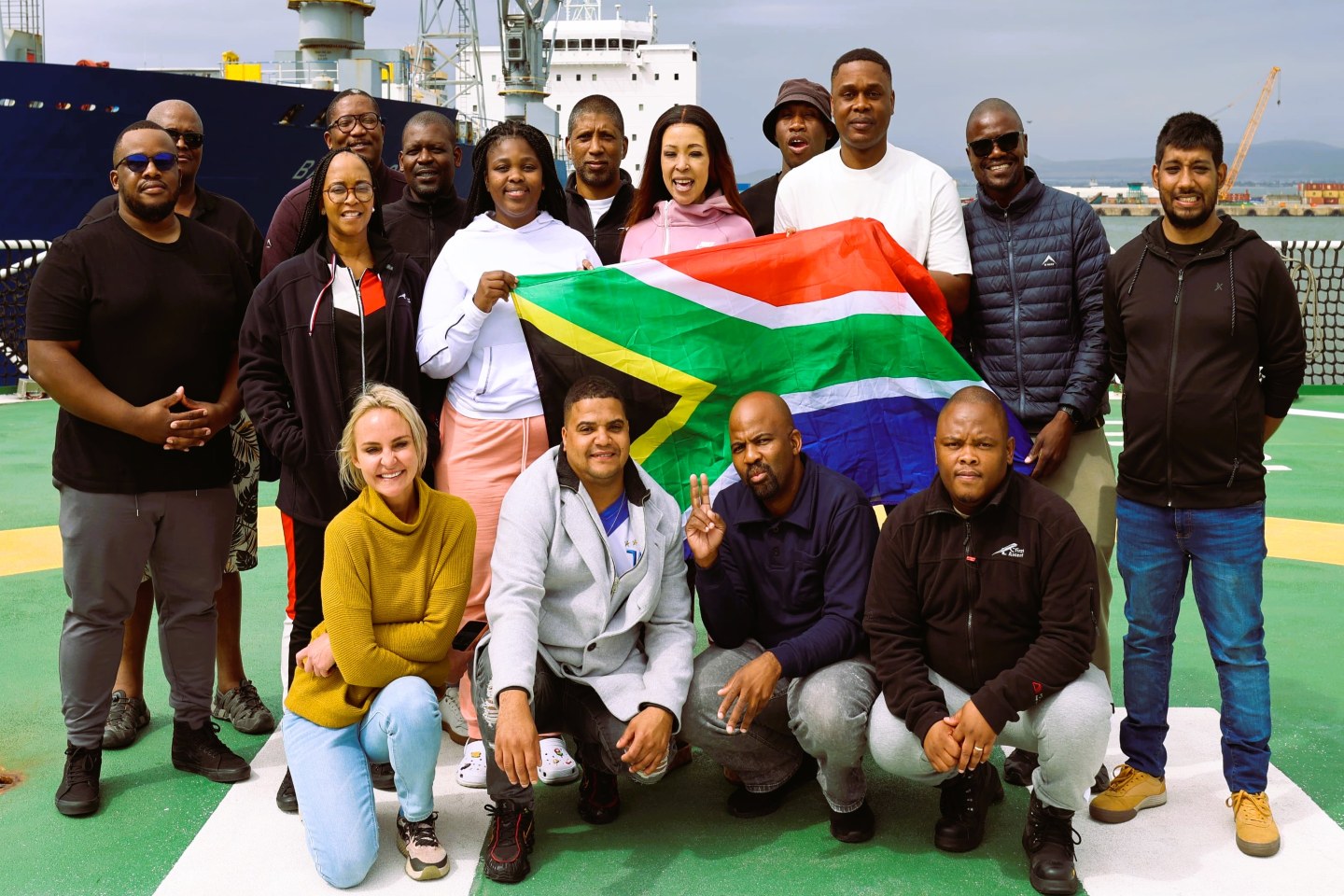 Above: SANAE64 Overwintering Team with DFFE Takeover Personnel.
Above: SANAE64 Overwintering Team with DFFE Takeover Personnel.
The overwintering teams are a group of exceptional individuals who endure the Antarctic winter—a period marked by freezing temperatures, months of darkness, and isolation. They are responsible for maintaining research stations, conducting experiments, and ensuring that the infrastructure is operational during the harshest months. The rotation ensures that the same team does not endure multiple seasons of isolation and provides an opportunity for fresh perspectives and new expertise.
The SA Agulhas II is not just a research vessel—it’s a symbol of South Africa’s commitment to the exploration of one of the most remote places on Earth. The vessel’s crew is tasked with navigating the seas and icy waters that surround Antarctica, with the ship braving some of the world’s roughest weather and icy waters. The crew ensures the vessel stays operational throughout the voyage, providing safety and support to everyone on board. This year, as always, the vessel crew will work tirelessly to ensure that all operations go smoothly. They will transport cargo, assist scientists with their research, and ensure the safe arrival and departure of personnel.
We wish the SA Agulhas II, its crew, the overwintering team, and all personnel embarking on this important voyage a safe and successful journey to the frozen south.

by Ria Olivier | Jun 16, 2024 | Commemorative Days, Important Dates, SA Agulhas II
Celebrating Youth Day today – Highlighting the school learners that attended the S.A. Agulhas II Open Day in Gqeberha, Eastern Cape.
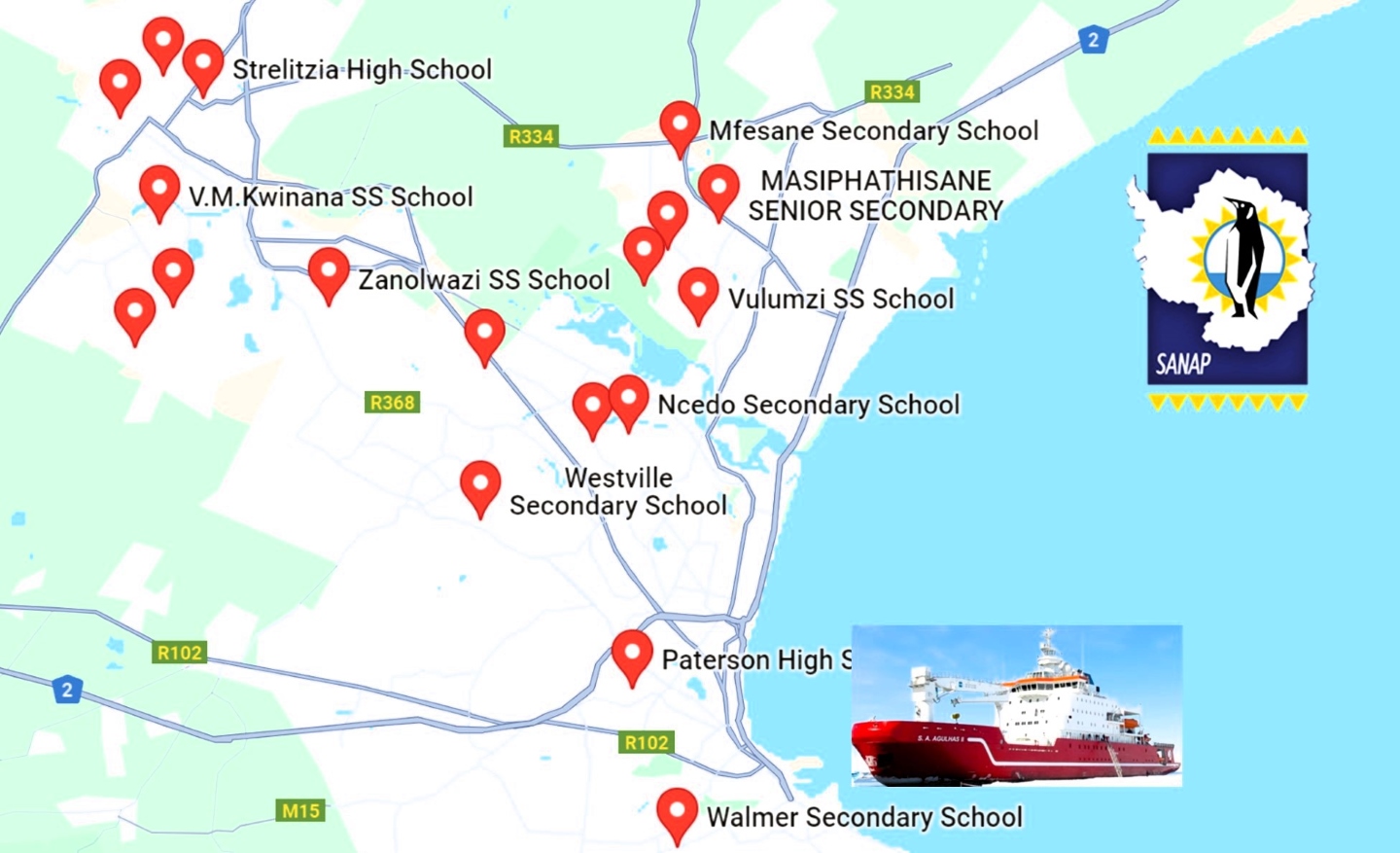 The Open Day was hosted by the Department of Forestry, Fisheries and the Environment of the S.A. Agulhas II at the Port of Port Elizabeth on 16 May and on the 17 May 2024, 1000 learners from 40 schools around the Metro were hosted.
The Open Day was hosted by the Department of Forestry, Fisheries and the Environment of the S.A. Agulhas II at the Port of Port Elizabeth on 16 May and on the 17 May 2024, 1000 learners from 40 schools around the Metro were hosted.
 In addition to exploring the SA Agulhas II, visitors on both days were able to engage with a diverse range of exhibits and interactive displays at an expo organised by DEFF and its partners. The expo showcased the vital work being done in marine research, conservation, and environmental stewardship.
In addition to exploring the SA Agulhas II, visitors on both days were able to engage with a diverse range of exhibits and interactive displays at an expo organised by DEFF and its partners. The expo showcased the vital work being done in marine research, conservation, and environmental stewardship.
 “We are thrilled with the overwhelming response by the residents of Gqeberha to the SA Agulhas II Open Day in Gqeberha,” said Minister Barbara Creecy. “This event provided a fantastic platform for the public to learn about the important research conducted aboard the SA Agulhas II and the critical role it plays as a supply vessel to the three research bases in Antarctica, Marion and Gough Islands in the Southern Ocean.” Full media release click here
“We are thrilled with the overwhelming response by the residents of Gqeberha to the SA Agulhas II Open Day in Gqeberha,” said Minister Barbara Creecy. “This event provided a fantastic platform for the public to learn about the important research conducted aboard the SA Agulhas II and the critical role it plays as a supply vessel to the three research bases in Antarctica, Marion and Gough Islands in the Southern Ocean.” Full media release click here
School Images: Department of Forestry, Fisheries and the Environment
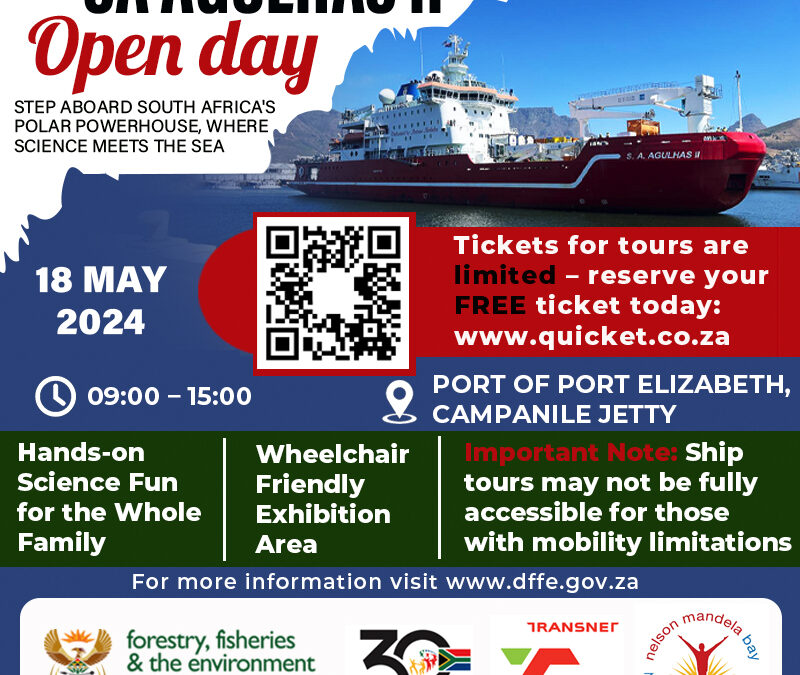
by Ria Olivier | May 6, 2024 | Important Dates, SA Agulhas II
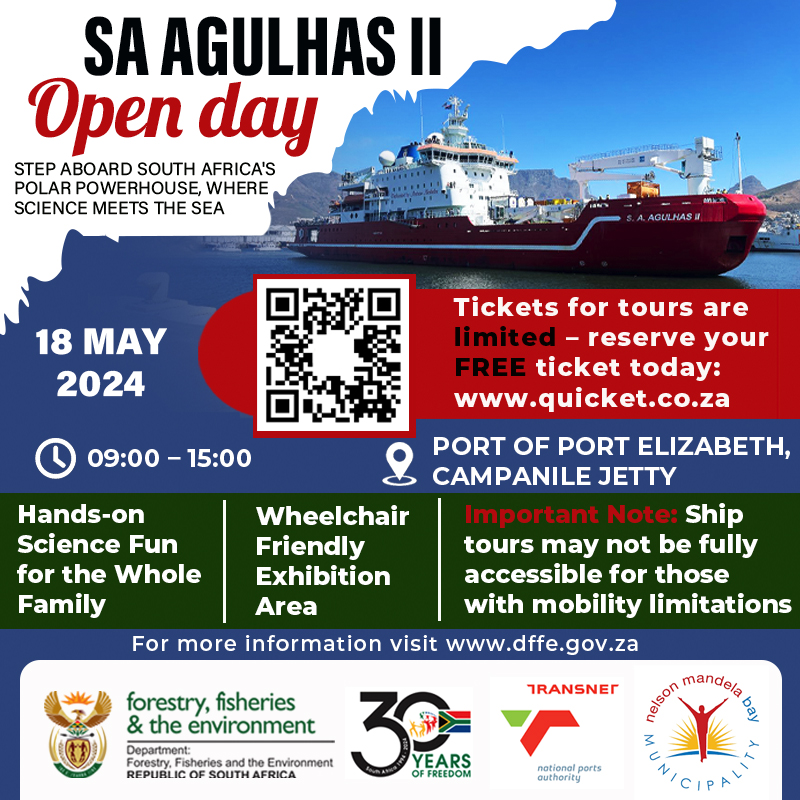 The Department of Forestry Fisheries and the Environment invites you to bring your entire family to come and experience a fun-filled day at the SA Agulhas II Open Day:
The Department of Forestry Fisheries and the Environment invites you to bring your entire family to come and experience a fun-filled day at the SA Agulhas II Open Day:
Date: 18 May 2024
Venue: Campanile Jetty, Port of Port Elizabeth/Gqeberha
Open 09h00 – Close 15h00
You and your family will have the unique opportunity of taking a tour of the S.A.Agulhas II research vessel. We also have our partners from the marine and maritime industry who will showcase their environmental work and scientific work.
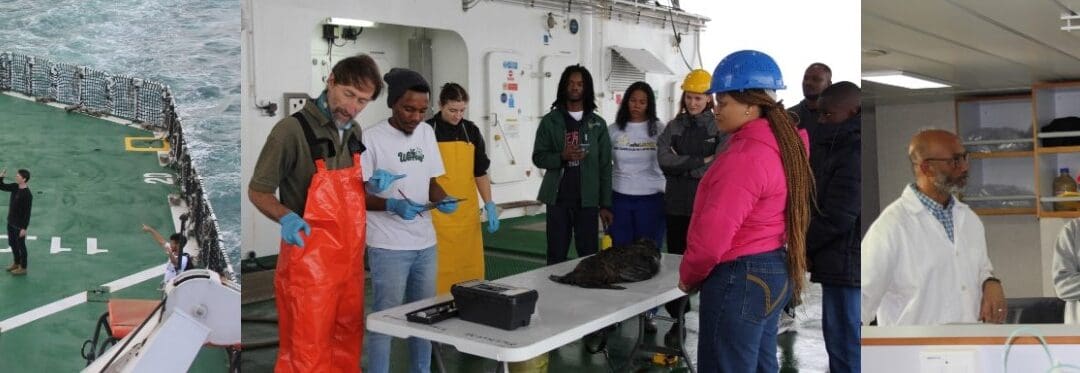
by Ria Olivier | Mar 20, 2024 | Research, SA Agulhas II, SANAP, SEAmester
 Training Tomorrow’s Oceanographers
Training Tomorrow’s Oceanographers
SEAmester’s success is evident in the academic achievements of its participants. A total of 254 students from over 26 institutes and universities have participated in the program, gaining comprehensive knowledge in oceanography, marine biology, atmospheric forecasting and navigation. The curriculum, developed in collaboration with leading marine scientists and lecturers across South Africa, ensures a balance between theoretical concepts and practical training of skills. SEAmester participants have contributed to several news publications, presenting their findings at national and international (SANAP 2023, IUGG 2023, @SEAnetwork 2022, VC award Ocean Womxn) conferences and workshops.
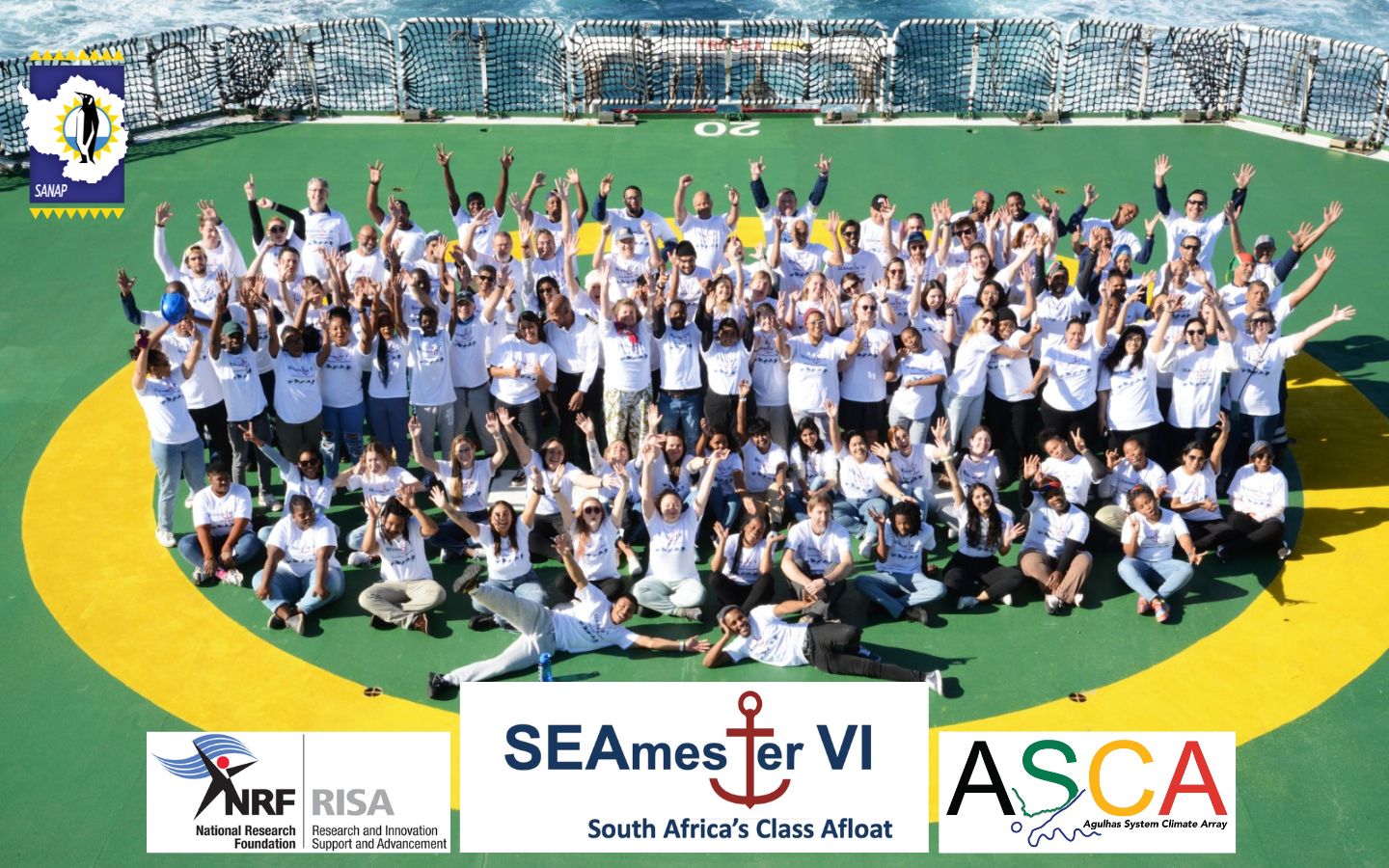 The program’s emphasis on research skills and scientific inquiry has empowered students to continue to make meaningful contributions to the field of marine science. Graduates of SEAmester have gone on to pursue advanced degrees and have secured positions in reputable research institutions, environmental organizations, and marine industries. The alumni network continues to grow, fostering collaboration and knowledge exchange between the cohort of SEAmester students. SEAmester’s success is further exemplified by the growing number of partnerships with academic institutions. Collaborative research projects, joint degree programs, and faculty exchanges have strengthened ties between SEAmester and leading universities in South Africa. International Collaborations: SEAmester is actively exploring partnerships with renowned international institutions to enhance the global reach of its educational offerings. Collaborative research projects and student exchanges will further enrich the program’s diversity and perspective. (Above SEAmester 2023)
The program’s emphasis on research skills and scientific inquiry has empowered students to continue to make meaningful contributions to the field of marine science. Graduates of SEAmester have gone on to pursue advanced degrees and have secured positions in reputable research institutions, environmental organizations, and marine industries. The alumni network continues to grow, fostering collaboration and knowledge exchange between the cohort of SEAmester students. SEAmester’s success is further exemplified by the growing number of partnerships with academic institutions. Collaborative research projects, joint degree programs, and faculty exchanges have strengthened ties between SEAmester and leading universities in South Africa. International Collaborations: SEAmester is actively exploring partnerships with renowned international institutions to enhance the global reach of its educational offerings. Collaborative research projects and student exchanges will further enrich the program’s diversity and perspective. (Above SEAmester 2023)
 As the field of ocean science evolves, SEAmester is committed to incorporating emerging disciplines such as marine robotics, climate science, and biotechnology into its curriculum. This ensures that students are well-prepared for the challenges and opportunities of the future direction and foci of marine sciences. Recognizing the importance of accessibility, SEAmester continues to develop and teach digital learning/mapping/visual platforms to complement its on-board training.
As the field of ocean science evolves, SEAmester is committed to incorporating emerging disciplines such as marine robotics, climate science, and biotechnology into its curriculum. This ensures that students are well-prepared for the challenges and opportunities of the future direction and foci of marine sciences. Recognizing the importance of accessibility, SEAmester continues to develop and teach digital learning/mapping/visual platforms to complement its on-board training.
“SEAmester gave me hope… hope that if you look, opportunities will unfold.” – Ntando.
Below examples of the many articles and presentations coming out of the programme…
A report which is a poll of all 6 SEAmester student cohorts on the importance of their SEAmester experience in shaping their studies, career trajectory etc. will be published soon.
IMAGES available on ALSA archive
Text by Isabelle Ansorge.
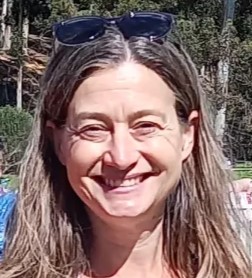
by Ria Olivier | Feb 29, 2024 | Biogeochemistry, geochemistry, Research, SA Agulhas II, SANAP, SANAP Student, South Atlantic, Southern Ocean
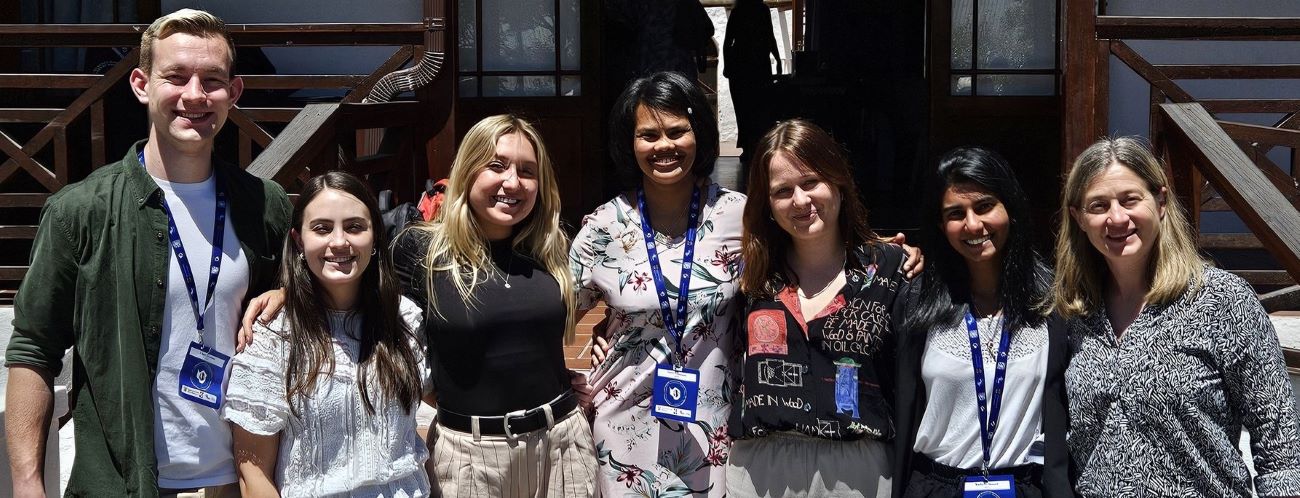
 The third session within the Marine and Antarctic Research Strategy research theme: Oceans and marine ecosystems under global change chaired by Suzanne Fietz of Stellenbosch University. The presentations resort under the title ‘Southern Ocean productivity: drivers and consequences. The session was introduced by Susanne Fietz and the alignment to MARS. (Above: group photo – Photo credit Suzanne Fietz)
The third session within the Marine and Antarctic Research Strategy research theme: Oceans and marine ecosystems under global change chaired by Suzanne Fietz of Stellenbosch University. The presentations resort under the title ‘Southern Ocean productivity: drivers and consequences. The session was introduced by Susanne Fietz and the alignment to MARS. (Above: group photo – Photo credit Suzanne Fietz)
 Above (l-r): Liam Quinlan, Emtia Wium, Johan Viljoen, Asmita Singh, Jared Walsh (Stellenbosch University)
Above (l-r): Liam Quinlan, Emtia Wium, Johan Viljoen, Asmita Singh, Jared Walsh (Stellenbosch University)
- Liam Quinlan: Characterising phytoplankton communities: A Southern Ocean case study of environmental coupling. (Abstract)
- Amelia Deary: Early community development at the Southern Ocean Marginal Ice Zone. (Abstract)
- Sadiyah Rawat: The role of the island mass effect in enhancing productivity and carbon export in the Subantarctic Ocean. (Abstract)
- Emtia Wium: Impact of metals in aerosols and dust on marine phytoplankton: South Africa. (Abstract)
- Sina Wallschuss: The seasonality and origins of nitrous oxide in the Atlantic sector of the Southern Ocean. (Abstract)
- Faith February: Observations of Southern Ocean marine aerosols in Simon’s Town, False Bay. (Abstract)
- Susanne Fietz: General discussion
- Mhlangabezi Mdutyana: Nitrification in the Southern Ocean: controls, kinetics, and biogeochemical implications. (Abstract)
- Susanne Fietz: Trace metals and phytoplankton. (Abstract)
 Above (l-r): Amelia Deary, Sadiyah Rawat, Sina Wallschuss, Faith February, Mhlangabezi Mdutyana (UCT)
Above (l-r): Amelia Deary, Sadiyah Rawat, Sina Wallschuss, Faith February, Mhlangabezi Mdutyana (UCT)
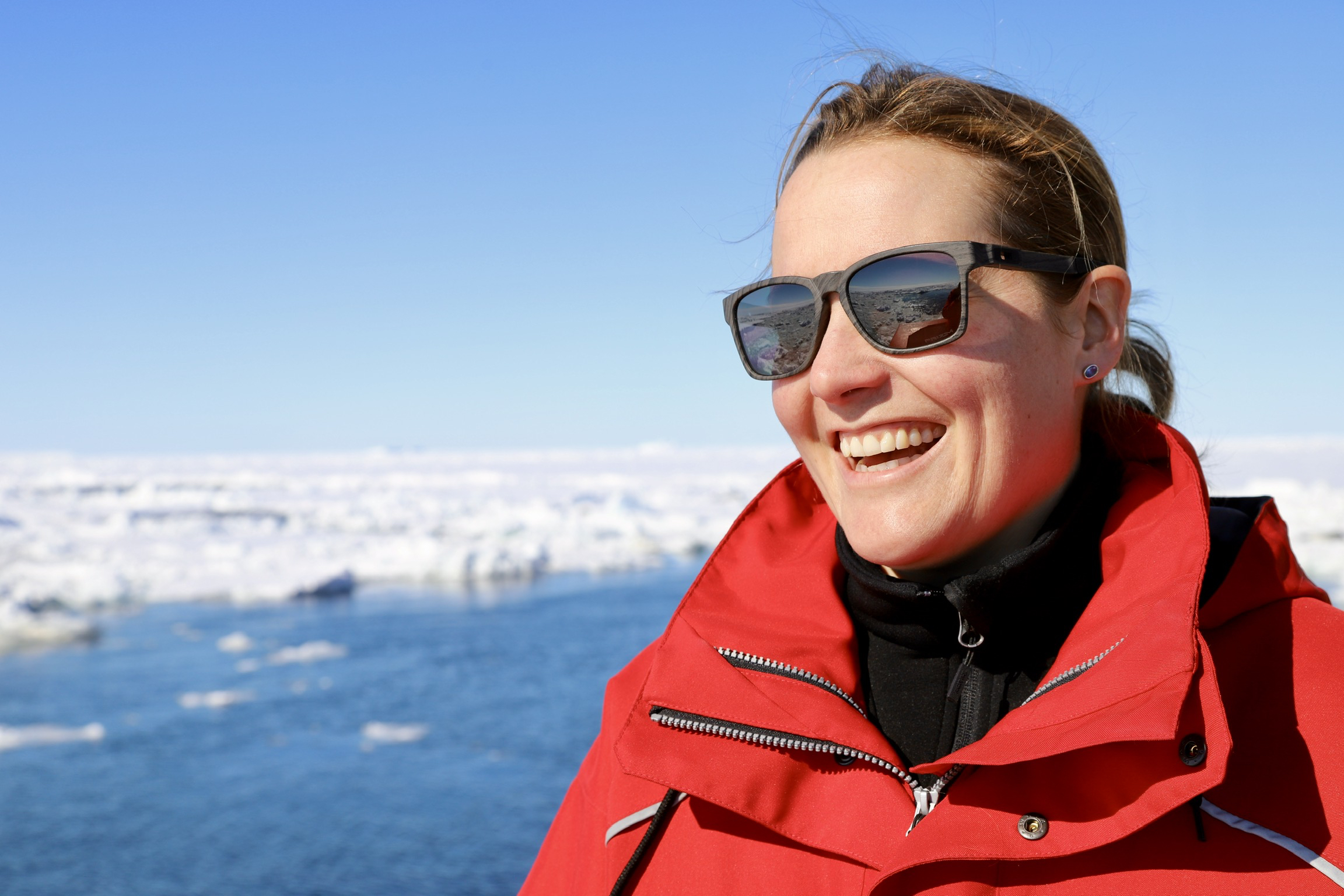
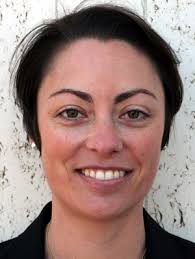 Sarah Fawcett(left) could not attend, but her and Dr Katye Altieri (right)students gave presentations during this session. Sarah Fawcett (abstract): Nanoplankton: the dominant vector for carbon export across the Atlantic Southern Ocean in spring.
Sarah Fawcett(left) could not attend, but her and Dr Katye Altieri (right)students gave presentations during this session. Sarah Fawcett (abstract): Nanoplankton: the dominant vector for carbon export across the Atlantic Southern Ocean in spring.
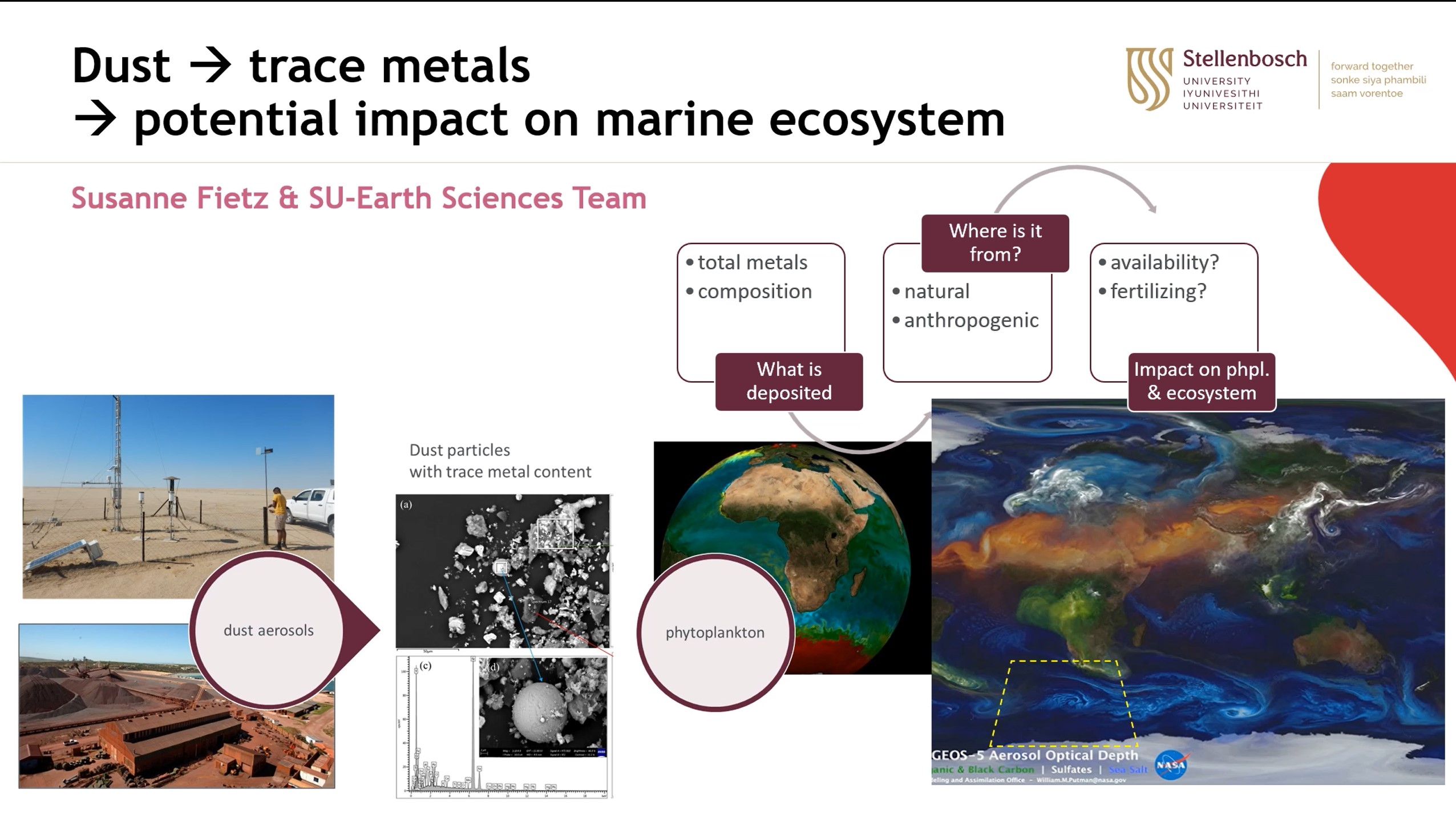 Suzanne Fietz and the Stellenbosch University Earth Sciences team submitted an excellent e-poster Asmita Singh(e-poster) and Johan Viljoen (abstract) and Jared Walsh(abstract) were not able to attend the symposium in person.
Suzanne Fietz and the Stellenbosch University Earth Sciences team submitted an excellent e-poster Asmita Singh(e-poster) and Johan Viljoen (abstract) and Jared Walsh(abstract) were not able to attend the symposium in person.


 The Department of Forestry, Fisheries and the Environment is pleased to announce the upcoming voyage schedule for the S.A. Agulhas II for the 2025/2026 season. This state-of-the-art polar research and supply vessel will continue its vital role in supporting South Africa’s research stations in Antarctica and the sub-Antarctic islands. Below is the planned itinerary provided by the Department of Forestry Fisheries and the Environment:
The Department of Forestry, Fisheries and the Environment is pleased to announce the upcoming voyage schedule for the S.A. Agulhas II for the 2025/2026 season. This state-of-the-art polar research and supply vessel will continue its vital role in supporting South Africa’s research stations in Antarctica and the sub-Antarctic islands. Below is the planned itinerary provided by the Department of Forestry Fisheries and the Environment: DOWNLOAD PDF Voyage Schedule 2025-2026
DOWNLOAD PDF Voyage Schedule 2025-2026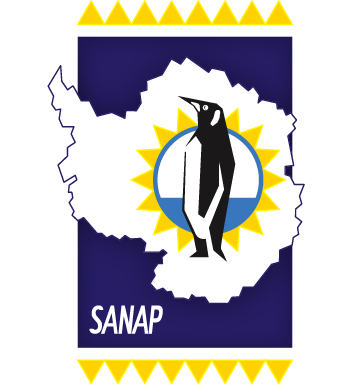

 Every year, the South African vessel, the SA Agulhas II, embarks on a journey to Antarctica, marking the beginning of its annual research and supply voyage. This critical mission is not only a symbol of South Africa’s dedication to scientific research but also a lifeline for the overwintering team, personnel rotations, and vital logistical support for stations on the frozen continent. On the 15th of December, the SA Agulhas II departed from Cape Town, South Africa, bound for Antarctica. This voyage marks the commencement of a multifaceted operation, which encompasses research, supply deliveries, and personnel exchanges between Antarctica and the rest of the world. Left: Shiraan Watson DCO of DFFE
Every year, the South African vessel, the SA Agulhas II, embarks on a journey to Antarctica, marking the beginning of its annual research and supply voyage. This critical mission is not only a symbol of South Africa’s dedication to scientific research but also a lifeline for the overwintering team, personnel rotations, and vital logistical support for stations on the frozen continent. On the 15th of December, the SA Agulhas II departed from Cape Town, South Africa, bound for Antarctica. This voyage marks the commencement of a multifaceted operation, which encompasses research, supply deliveries, and personnel exchanges between Antarctica and the rest of the world. Left: Shiraan Watson DCO of DFFE  The SA Agulhas II plays a pivotal role in supporting research and exploration in one of the most extreme and least understood environments on Earth. South Africa’s station in Antarctica, SANAE IV Station, rely on the vessel’s annual voyages for everything from scientific supplies to food, equipment, and fuel. The vessel also delivers critical scientific personnel, scientists, and engineers who are essential for conducting experiments, research, and environmental monitoring on the frozen continent.
The SA Agulhas II plays a pivotal role in supporting research and exploration in one of the most extreme and least understood environments on Earth. South Africa’s station in Antarctica, SANAE IV Station, rely on the vessel’s annual voyages for everything from scientific supplies to food, equipment, and fuel. The vessel also delivers critical scientific personnel, scientists, and engineers who are essential for conducting experiments, research, and environmental monitoring on the frozen continent. Above: SANAE64 Overwintering Team with DFFE Takeover Personnel.
Above: SANAE64 Overwintering Team with DFFE Takeover Personnel.
 The Open Day was hosted by the Department of Forestry, Fisheries and the Environment of the S.A. Agulhas II at the Port of Port Elizabeth on 16 May and on the 17 May 2024, 1000 learners from 40 schools around the Metro were hosted.
The Open Day was hosted by the Department of Forestry, Fisheries and the Environment of the S.A. Agulhas II at the Port of Port Elizabeth on 16 May and on the 17 May 2024, 1000 learners from 40 schools around the Metro were hosted. In addition to exploring the SA Agulhas II, visitors on both days were able to engage with a diverse range of exhibits and interactive displays at an expo organised by DEFF and its partners. The expo showcased the vital work being done in marine research, conservation, and environmental stewardship.
In addition to exploring the SA Agulhas II, visitors on both days were able to engage with a diverse range of exhibits and interactive displays at an expo organised by DEFF and its partners. The expo showcased the vital work being done in marine research, conservation, and environmental stewardship. “We are thrilled with the overwhelming response by the residents of Gqeberha to the SA Agulhas II Open Day in Gqeberha,” said Minister Barbara Creecy. “This event provided a fantastic platform for the public to learn about the important research conducted aboard the SA Agulhas II and the critical role it plays as a supply vessel to the three research bases in Antarctica, Marion and Gough Islands in the Southern Ocean.” Full media release
“We are thrilled with the overwhelming response by the residents of Gqeberha to the SA Agulhas II Open Day in Gqeberha,” said Minister Barbara Creecy. “This event provided a fantastic platform for the public to learn about the important research conducted aboard the SA Agulhas II and the critical role it plays as a supply vessel to the three research bases in Antarctica, Marion and Gough Islands in the Southern Ocean.” Full media release 
 The Department of Forestry Fisheries and the Environment invites you to bring your entire family to come and experience a fun-filled day at the SA Agulhas II Open Day:
The Department of Forestry Fisheries and the Environment invites you to bring your entire family to come and experience a fun-filled day at the SA Agulhas II Open Day:
 Training Tomorrow’s Oceanographers
Training Tomorrow’s Oceanographers The program’s emphasis on research skills and scientific inquiry has empowered students to continue to make meaningful contributions to the field of marine science. Graduates of SEAmester have gone on to pursue advanced degrees and have secured positions in reputable research institutions, environmental organizations, and marine industries. The alumni network continues to grow, fostering collaboration and knowledge exchange between the cohort of SEAmester students. SEAmester’s success is further exemplified by the growing number of partnerships with academic institutions. Collaborative research projects, joint degree programs, and faculty exchanges have strengthened ties between SEAmester and leading universities in South Africa. International Collaborations: SEAmester is actively exploring partnerships with renowned international institutions to enhance the global reach of its educational offerings. Collaborative research projects and student exchanges will further enrich the program’s diversity and perspective. (Above SEAmester 2023)
The program’s emphasis on research skills and scientific inquiry has empowered students to continue to make meaningful contributions to the field of marine science. Graduates of SEAmester have gone on to pursue advanced degrees and have secured positions in reputable research institutions, environmental organizations, and marine industries. The alumni network continues to grow, fostering collaboration and knowledge exchange between the cohort of SEAmester students. SEAmester’s success is further exemplified by the growing number of partnerships with academic institutions. Collaborative research projects, joint degree programs, and faculty exchanges have strengthened ties between SEAmester and leading universities in South Africa. International Collaborations: SEAmester is actively exploring partnerships with renowned international institutions to enhance the global reach of its educational offerings. Collaborative research projects and student exchanges will further enrich the program’s diversity and perspective. (Above SEAmester 2023) As the field of ocean science evolves, SEAmester is committed to incorporating emerging disciplines such as marine robotics, climate science, and biotechnology into its curriculum. This ensures that students are well-prepared for the challenges and opportunities of the future direction and foci of marine sciences. Recognizing the importance of accessibility, SEAmester continues to develop and teach digital learning/mapping/visual platforms to complement its on-board training.
As the field of ocean science evolves, SEAmester is committed to incorporating emerging disciplines such as marine robotics, climate science, and biotechnology into its curriculum. This ensures that students are well-prepared for the challenges and opportunities of the future direction and foci of marine sciences. Recognizing the importance of accessibility, SEAmester continues to develop and teach digital learning/mapping/visual platforms to complement its on-board training.

 Above (l-r): Liam Quinlan, Emtia Wium, Johan Viljoen, Asmita Singh, Jared Walsh (Stellenbosch University)
Above (l-r): Liam Quinlan, Emtia Wium, Johan Viljoen, Asmita Singh, Jared Walsh (Stellenbosch University) Above (l-r): Amelia Deary, Sadiyah Rawat, Sina Wallschuss, Faith February, Mhlangabezi Mdutyana (UCT)
Above (l-r): Amelia Deary, Sadiyah Rawat, Sina Wallschuss, Faith February, Mhlangabezi Mdutyana (UCT)
 Sarah Fawcett(left) could not attend, but her and Dr Katye Altieri (right)students gave presentations during this session. Sarah Fawcett (
Sarah Fawcett(left) could not attend, but her and Dr Katye Altieri (right)students gave presentations during this session. Sarah Fawcett ( Suzanne Fietz and the Stellenbosch University Earth Sciences team submitted an excellent
Suzanne Fietz and the Stellenbosch University Earth Sciences team submitted an excellent 
